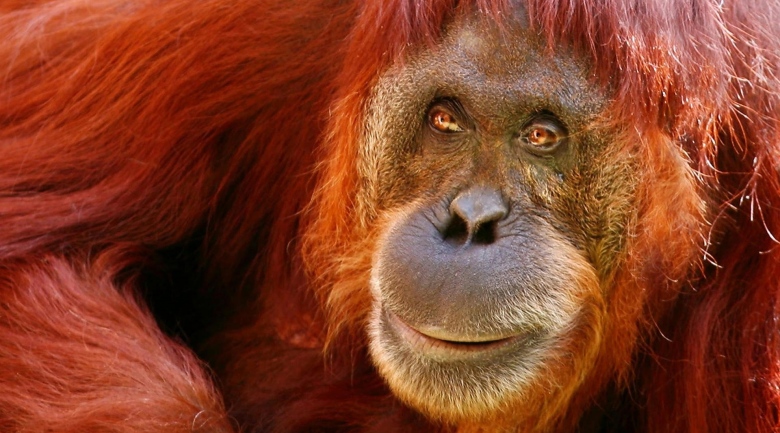
Humans’ closest animal relatives, chimpanzees, have metacognition — knowing what one knows, according to new research by scientists at Georgia State University and the University at Buffalo.
“The demonstration of metacognition in nonhuman primates has important implications regarding the emergence of self-reflective mind during humans’ cognitive evolution,” the research team noted.
Metacognition is the ability to recognize one’s own cognitive states. For example, a game show contestant must make the decision to “phone a friend” or risk it all, dependent on how confident he or she is in knowing the answer.
“There has been an intense debate in the scientific literature in recent years over whether metacognition is unique to humans,” said Michael J. Beran of the Georgia State Language Research Center
Chimpanzees at Georgia State’s LRC have been trained to use a language-like system of symbols to name things, giving researchers a unique way to query animals about their states of knowing or not knowing.
In the experiment, researchers tested the chimpanzees on a task that required them to use symbols to name what food was hidden in a location. If a piece of banana was hidden, the chimpanzees would report that fact and gain the food by touching the symbol for banana on their symbol keyboards.
But then, the researchers provided chimpanzees either with complete or incomplete information about the identity of the food rewards.
In some cases, the chimpanzees had already seen what item was available in the hidden location and could immediately name it by touching the correct symbol without going to look at the item in the hidden location to see what it was.
